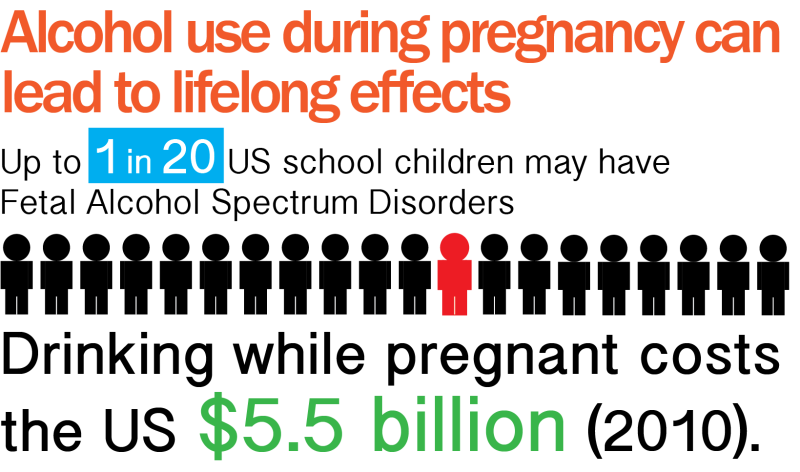
The Center for Disease Control and Prevention (CDC) faced unexpected backlash Feb. 2 after recommending that sexually-active American women who are not on birth control should abstain from drinking alcohol.
“An estimated 3.3 million women between the ages of 15 and 44 years are at risk of exposing their developing baby to alcohol because they are drinking, sexually active and not using birth control to prevent pregnancy,” according to the CDC. The organization’s research also found that “3 in 4 women who want to get pregnant as soon as possible do not stop drinking alcohol when they stop using birth control.”
Drinking while pregnant can expose a developing baby to Fetal Alcohol Spectrum Disorders (FASD). According to the National Organization on Fetal Alcohol Syndrome, FASD is “an umbrella term describing the range of effects that can occur in an individual whose mother drank during pregnancy.” Effects of FASD may include “physical, mental, behavioral and/or learning disabilities with lifelong implications.”
CDC principal deputy director Anne Schuchat warned women that drinking while not on birth control can cause serious damage. “Alcohol can permanently harm a developing baby before a woman knows she is pregnant,” Schuchat said. “About half of all pregnancies in the United States are unplanned, and even if planned, most women won’t know they are pregnant for the first month or so, when they might still be drinking. The risk is real why take the chance?”
Many women saw the CDC’s recommendation for women not on birth control to abstain from drinking as ludicrous. What right does the government have to tell women what behavior is acceptable in order to protect a child that may not even exist? In a post on the feminist blog Jezebel, writer Jia Tolentino slammed Schuchat and the CDC for what she considered an infringement on women’s rights. “You heard them: f*** your bodily reactions, your desires, your circumstances; forget that the real problem is abortion access and that birth control occasionally fails,” she said. “Women, your body is a ticking time bomb in which the bomb is a fetus, so get on birth control or stop drinking — that’s the way it’s going to be!”
Tolentino is completely right that the birth control pill can cause unwanted bodily reactions. According to WebMD, women can suffer from a number of side effects including nausea, weight gain and sore or swollen breasts. However, the CDC never explicitly said women should be using the birth control pill. There are a number of different contraceptives available including birth control implants, IUDs and the morning after pill. For women not wanting to use a birth control method that affects their hormonal balance, condoms are cheap and, according to Planned Parenthood, effective at preventing pregnancies 92 percent of the time when used properly.
Los Angeles Times reporter Jessica Roy also criticized the recommendation, arguing that it “flat-out ignores a large group of sexually active women: the ones who are having sex with other women.” This criticism is far more ridiculous than Tolentino’s. Why would the CDC warn women with no chance of getting pregnant not to drink simply because their bodies are capable of it? Roy’s analysis gets to the core of what is wrong with the outrage facing CDC. They were not telling women not to drink because they’re capable of getting pregnant. They were recommending women who put themselves at risk of getting pregnant by voluntarily not using birth control to abstain from drinking.
Instead of telling women not to drink alcohol if they are not on birth control, the CDC should have encouraged women who drink and are sexually active to use contraceptives. Perhaps some blame should be put on the conservatives in Washington who continue to demonize Planned Parenthood and push for its defunding. According to Planned Parenthood, less than half of states in the U.S. require insurance plans to cover birth control. To better prevent FASD, the government should not tell women to stop drinking, but instead provide better access to basic contraceptives.


Maria Gardner / Feb 20, 2016 at 8:14 am
Being drunk may seem like a lot of fun and might be a great way to socialise and forget regarding the everyday problems. However at the same time frame it can be quite bad for you – leaving you dizzy and forgetful and meaning you are likely to vomit. This means that it’s not suitable for every situation and that it could be dangerous too much. Having the ability to quickly sober back up then is a significant skill that we will appear at here.
You can Have a look that is quick google for John Dawkins program quit drinking to get the data you’ll need to help with alcoholism.
An excellent read. I’ll definitely be back.